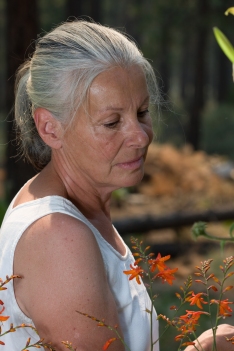I recently got to thinking about why I haven’t really slept well each night since my wife’s passing (in was in mid-August 2011).
While I’ve emotionally, intellectually (and to my own degree of spirtuality) have come to accept her death, it struck me that maybe my brain is not yet physically adjusted. For example, I’m still somewhat sensitive to noise and movement in the night. It occurred to me that my brain was still in “first responder” mode.
During the daytime, the nurse’s aide would help with my wife, but at night, when she went to her bedroom, I became the first responder to any issues – like pain, medication or shifting her when she called out to me. It’s as if my brain is still acclimated to being “on alert” and to be the primary responder. As I now have this to ponder, I wonder if I can begin to heal myself, now that I may know something of the possible underlying issue? We shall see.
Often, caregivers struggle with learning a new routine after a loved one’s passing. I read an article recently from a woman who explained “While you’re caring for the old, you can’t believe what you’re called on to do and where you find yourself, can’t believe that your time with them will ever end. Then one day, it just does.”
She describes how she would look around at the things she inherited from her family after their passing and still seeing them sitting in the same chairs, using the same essentials around the house. No matter how much you prepare for a loved one’s death, the residual effects when suddenly your entire routine is changed in a second is devastating and can take years to overcome.
What sorts of things have you experienced after caregiving that were shocking to you?


 To be perfectly honest, I think this is an individual issue for each caregiver. There was only one time during my relatively short period (18 mos) as caregiver when I needed to ask for help. It was when my wife was going to come home after a stay in the hospital and I realized I could not give her the type of home medical care she needed. I had the feeling of being mentally blank!
To be perfectly honest, I think this is an individual issue for each caregiver. There was only one time during my relatively short period (18 mos) as caregiver when I needed to ask for help. It was when my wife was going to come home after a stay in the hospital and I realized I could not give her the type of home medical care she needed. I had the feeling of being mentally blank!

 Having played sports growing up and even to this day (tennis only now), I learned about how to tell when I was tiring out. When I tired out after playing long and/or hard, not only did by ability to play at my best deteriorate, everything else I had to do afterwards was a chore, tiring and mentally draining. I needed rest for my body to recuperate. But knowing this as an athlete, knowing this about yourself, is a way to understand when you, as the caregiver, are losing the ability to be a caregiver effectively. We need to stop caregiving for a while, just as we need to stop playing, and rest – physically and mentally.
Having played sports growing up and even to this day (tennis only now), I learned about how to tell when I was tiring out. When I tired out after playing long and/or hard, not only did by ability to play at my best deteriorate, everything else I had to do afterwards was a chore, tiring and mentally draining. I needed rest for my body to recuperate. But knowing this as an athlete, knowing this about yourself, is a way to understand when you, as the caregiver, are losing the ability to be a caregiver effectively. We need to stop caregiving for a while, just as we need to stop playing, and rest – physically and mentally.